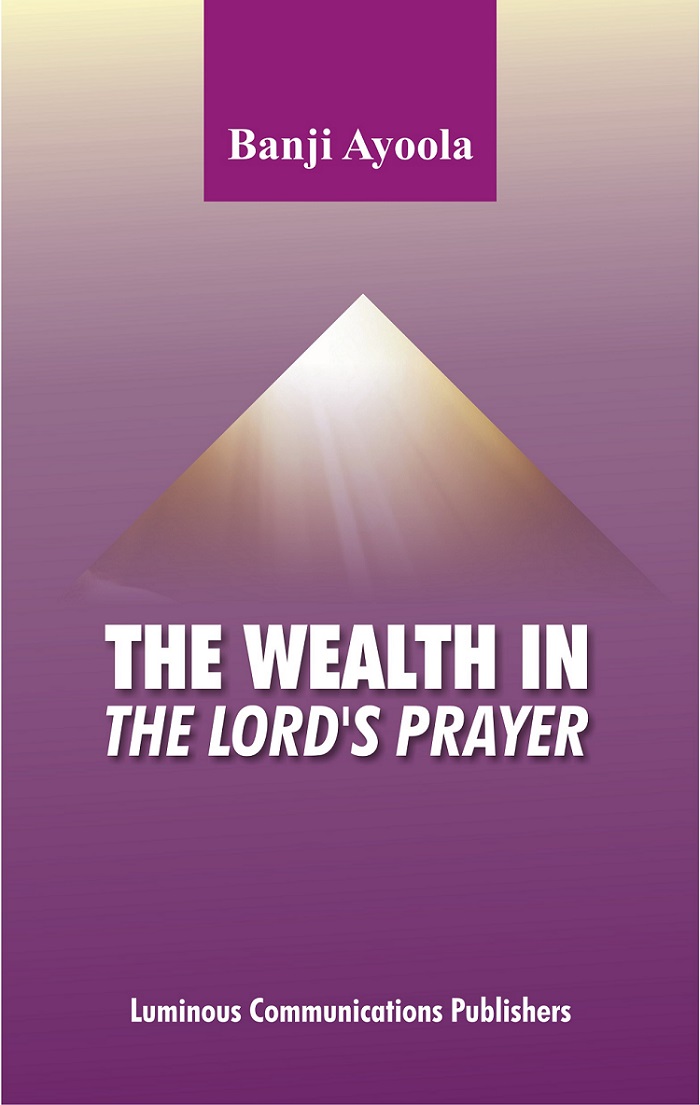- Unified rate will support growth, says Rewane •
- Local refineries must work’
Multiple exchange rates and the retention of petrol subsidy payment are unhelpful to the economy, finance and economic experts said yesterday.
They called for urgent policy reforms and redirection of key monetary and fiscal policies to halt economic decline and boost productivity.
The experts agreed with the presidential candidate of the All Progressives Congress (APC), Asiwaju Bola Tinubu’s position that multiple exchange rates and petrol subsidy must go for the economy to grow.
The experts called for proper foreign exchange (forex) management and removal of subsidy on Premium Motor Spirit (PMS) as major economic issues that need to be addressed.
They also prioritized forex and oil subsidy as main levers for other socio-economic reforms.
The naira depreciated further by 1.1 per cent to close at N456.50 per dollar at the official Investors and Exporters (I & E) Window.
At the parallel market, the naira closed at N758 per dollar. Decline in forex inflows have seen the country’s external reserves dropping to almost 10-year average at $36.95 billion at the weekend.
With about N5 trillion estimated as subsidy for PMS, otherwise known as petrol, in 2022 and expected to rise to some N7 trillion in 2023, queues were longer yesterday as the grueling petrol scarcity bite harder.
Motorists were forced by the queues at the major petrol stations dispensing at the official range of between N169 to N170 per litre, to the independent marketers and black market, where prices ranged between N250 to N270 per litre.
Experts pointed out that the forex crisis has two major dimensions-sharp depreciation in the exchange rate and volatility of the rate and illiquidity in the forex market.
Managing Director, Financial Derivatives Company (FDC) Limited, Bismarck Rewane, said a unified exchange rate regime supports economic development.
According to him, a unified exchange rate will impact the economy positively more than the current multiple exchange rates regime, which creates opportunity for arbitrage and a trigger for hyperinflation, as experienced by Venezuela.
He noted that the number of countries maintaining multiple exchange rates has been declining since 1990s because of the inherent gains in unified exchange rates.
Citing current data, Rewane said the more administrative controls in the forex market, the more the parallel market premium increases, ultimately leading to diversion of investment flows away from the market.
“In 2023, exchange rate adjustment is inevitable,” Rewane said.
Chief Executive Officer, Centre for the Promotion of Private Enterprise, (CPPE ), Mr. Muda Yusuf described a fixed exchange rate regime and administrative allocation of forex as “very dysfunctional”.
According to him, such policy stand has created a huge enterprise around forex- round tripping, speculation, over invoicing and capital flight among others.
“Evidently, the CBN does not believe in the market mechanism. But the truth is that market systems are time-tested frameworks for efficient resource allocation in most economies around the world. The course of market failures are recognised in economics and these are exceptions that can be identified and mitigated.
“But attempting to suppress the market as the CBN has been doing is like swimming against the tide. The current forex policy regime has created a flourishing subsidy enterprise. Managing a subsidy regime is typically a herculean task. We have seen this happened with fertiliser and petrol subsidy regimes. The story cannot be different with foreign exchange,” Yusuf said.
Suggesting the way out of forex conundrum, he said there was need to allow market-driven forex environment as well as de-emphasize demand management and focus on strategies to stimulate forex inflows.
According to him, a fixed exchange rate regime is a major disincentive to forex inflows and creates enormous pressure of demand for forex.
“A market driven forex framework will restore calmness and stability to the foreign exchange market and also boost forex supply. Although there may be a momentary spike in exchange rate, stability and gradual appreciation of the rate would follow soon after,” Yusuf said.
He lamented that the current approach would continue to deepen distortions in the economy, perpetuate round tripping, fuel speculation, suppress forex supply and boost underground economy.
He said the second fundamental issue to be dealt with is the structural constraint to productivity, urging policy makers to create an environment that incentivise exports as well as strengthen import substitution capacity.
“In normal circumstances, we have no business spending billions of dollars annually on importation of refined petroleum products, petrochemicals, fertiliser, iron and steel and food. We are sufficiently endowed to be self- sufficient in the production of these products. But for these to happen, there must be significant improvements in productivity and competitiveness. This would require significant investment in infrastructure and right policy choices. We also need to deal firmly and sustainably with the challenges of oil theft and the impunity associated with it,” Yusuf said.
Economic analyst and Professor at Nasarawa State University, Prof Uche Uwaleke agreed with Tinubu on the decision to do away with multiple exchange rates and fuel subsidy, if elected.
In a chat with The Nation, Uwaleke described multiple exchange rates and fuel subsidy as “undesirable and need to be phased out. It goes without saying that multiple exchange rates and fuel subsidy have created room for corruption”.
Uwaleke said “it encourages round tripping and sharp practices in the forex market while in the case of the fuel subsidy, it has fueled opacity in the operations of the National oil company, the NNPC as well as contributed significantly to worsening government fiscal position through increased borrowing”.
“The 2023 federal budget has already made provision for ending the fuel subsidy by June next year. To this end, scrapping fuel subsidy on assumption of office by any new administration would be in line with the budget implementation.
“The immediate impact of the twin measures of floating the naira in pursuit of a single official exchange rate and removing subsidy on petroleum products would be a spike in inflation rate and poverty levels especially given the fact that market-determined exchange rate is not envisaged in the 2023 budget proposal now before the National Assembly.
“Against this backdrop, while I support that fuel subsidy should go next year after the government must have made provision for compensation schemes to mitigate its negative impact on the economy, I suggest that the CBN should have a plan to gradually unify multiple rates across all forex windows in a manner that will not cause significant distortions in the economy,” Uwaleke said.
Chief Executive Officer, Marble Capital, Mr. Akeem Oyewale, underscored the need to as much as possible, prevent the dollarisation of the economy.
“The need to have a market-determined, single exchange rate and prevent or minimise arbitrage would be expedient. The implementation of the PIA and efforts to encourage enhanced investments in the upstream sector would be important. Blocking leakages and removing subsidy on petrol is also critical as it is a massive drain pipe to the economy stability of the country. All of the above would require significant political will to ensure implementation. There will be resistance and some wouldn’t go smoothly but they’re critical policy decisions we need to make in the near term for the longer term vibrancy of our economy,” Oyewale said, when asked to outline policy priorities as economic adviser to a new government.
Director General, Nigerian Association of Chambers of Commerce, Industry, Mines and Agriculture (NACCIMA), Olusola Obadimu, decried disparity in forex rates, where government’s preferential forex window is not even available to manufacturers with export potential, but available “people going on pilgrimages; people that are not paying taxes, people that are not employing anybody.”
He also outlined that infrastructure and security are critical issues confronting private sector operators which the incoming government must tackle as soon as it hits the ground running.
Read Also: Nigeria overdue for Tinubu’s presidency – Marindoti, US-based medic
“If infrastructure is not good, you spend more. That’s why we have this cost-push inflation. The costs of inputs are rising. If you produce your power (diesel is now expensive), your roads are not good, you have to spend more money to maintain your generator, vehicles etc.
“All these costs will be built into your cost of production and nobody will sell below his production cost,” Obadimu told The Nation.
The NACCIMA DG also advocated a drastic reduction in cost of governance and the need to exercise more fiscal discipline by government at all levels. He pointed out that the situation eats into resources that should have been channeled to more economically productive areas.
Deputy President, Lagos Chamber of Commerce & Industry (LCCI), Gabriel Idahosa said halting the depreciation of the naira cannot be a quick fix.
He argued that the causes of the depreciation have built up over several decades starting with the first spike by the 1986 Structural Adjustment Programme, SAP.
Idahosa noted that about 30 per cent of our annual import bill is for refined petroleum products.
According to him, as far back as 30 years ago oil companies that wanted to invest in refineries asked for removal of fuel subsidy so that they can produce refined petroleum products locally and sell at prices that cover their costs plus reasonable profit margin to give returns to their shareholders.
His words: “If we had consented, by now Nigeria would have become not just self-sufficient but also a major exporter of refined petroleum products. We would be talking of a strong currency comparable to those of Saudi Arabia, United Arab Emirates, Qatar and Kuwait. We also lost a similar opportunity to be a major exporter of rice since about the same thirty years ago when we had a lot of oil money to build very large rice farms and rice mills all over the country,” Idahosa said.
Analysts at Cordros Capital Group at the weekend said further adjustments of the forex rate to its fair value and flexibility in the exchange rate remain major levers in attracting foreign inflows into the country.
Member of CBN-led Monetary Policy Committee (MPC), Prof. Adeola Adenikinju warned that the naira faces immense challenge ahead unless certain conditions were addressed.
Adenikinju, a Professor of Research at the Centre for Econometrics and Allied Research, University of Ibadan, said the fall in foreign reserves and deterioration of current account balances were red signals.
He further explained that although the foreign exchange rate markets remain relatively stable at official market, the weak performance of the current account balances, fall in foreign reserves and the small margin between oil price and the budget benchmark price for oil, imply that there could be increasing pressure on the naira in the medium term if the existing conditions subsist.
Managing Director, Cowry Asset Management Limited, Johnson Chukwu, said that to save the naira, Nigeria needs to build an economy that is net exporter of valuable goods and services to earn more dollars.
He said when the production capacity of the country is boosted, forex will be saved for other things that are critical.
He also called for greater reassurance on forex and other policy reforms for Nigeria to attract foreign investor participation.
Monetary Policy Committee (MPC) and Board member of the CBN Professor Mike Obadan explained that there is notable imbalance between supply of foreign exchange and the demand for it.
“Demand far exceeds the supply of forex, hence the notable depreciation of the naira in all the markets, official and unofficial,” Obadan said.
He noted that “the scarcity of foreign exchange is visible every where. There is the issue of desperate demand by some economic agents in recent times, notably the political class for obvious reasons and education seekers abroad.They have been buying forex at any price in the parallel market”.
Proferring solutions on what can be done in the short-term to strengthen the naira, Prof. Obadan insisted that forex supply must be boosted “by quickly resolving the problem of oil theft in the Niger Delta. This will enable more production and export of crude oil to match the country’s OPEC quota. For many months now, the country has not earned one naira or one dollar from crude oil export.
“In addition, the continued implementation of the CBN’s forex enhancing policies, e. g, naira for dollar policy and RT 200 FX Policy should be sustained. “They are working, especially the naira for dollar policy which has encouraged significant remittances from the diaspora”.
The CBN Board member also advocated for a “reduction in forex demand for importation of petroleum products, provide necessary support to the Dangote Refinery to expedite its take-off early 2023. It will save a large amount of forex being used for petroleum product importation”.
Also, the International Monetary Fund (IMF) said countries with multiple exchange rates on average also experience higher inflation. With lowering inflation and boosting growth as focal points for Nigeria, unification of the exchange rate can bring major gains.
The IMF called for a removal of foreign exchange restrictions, including recently introduced ones, and a full exchange rate unification, in line with the authorities Economic Recovery and Growth Plan (ERGP), will help keep the parallel market premium low in a more sustained manner. It will help Nigeria move towards a more diversified economy.
The Nation







